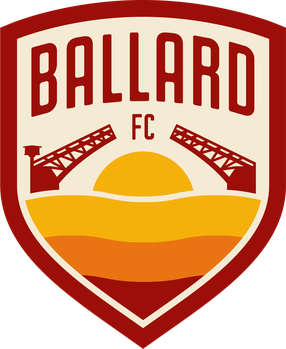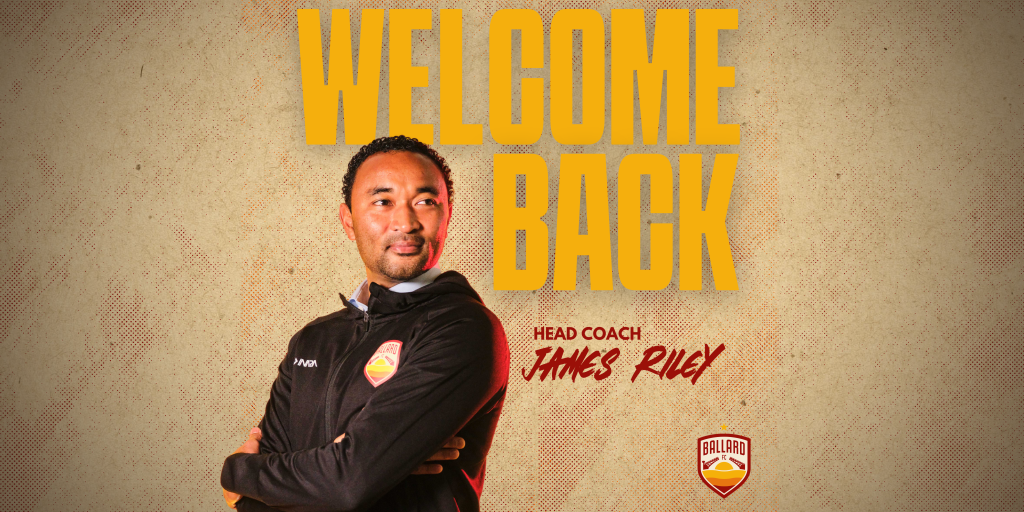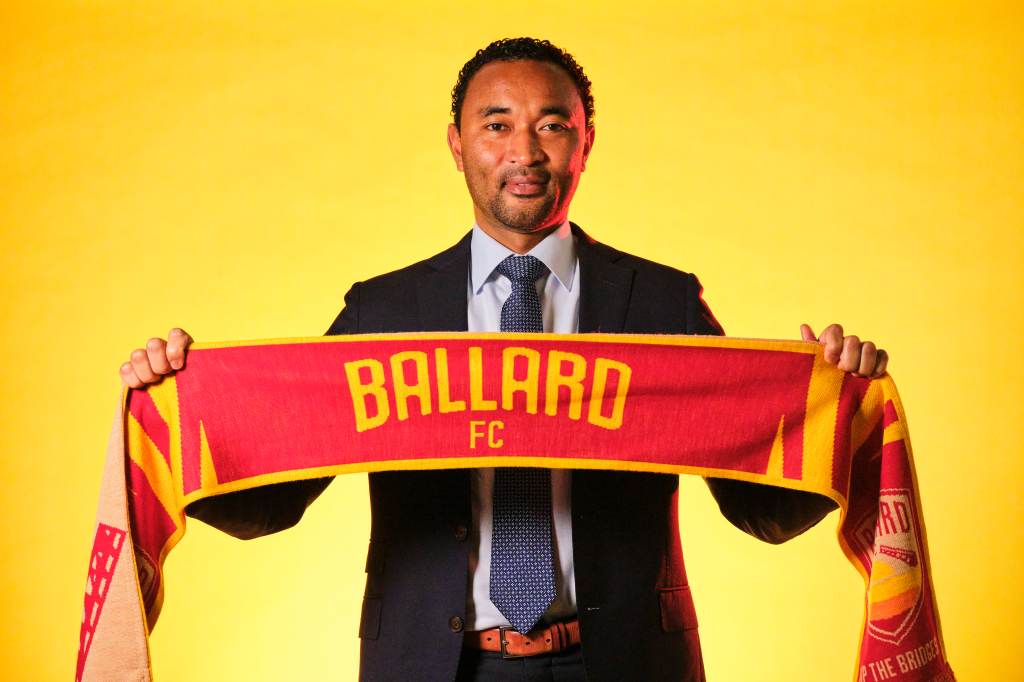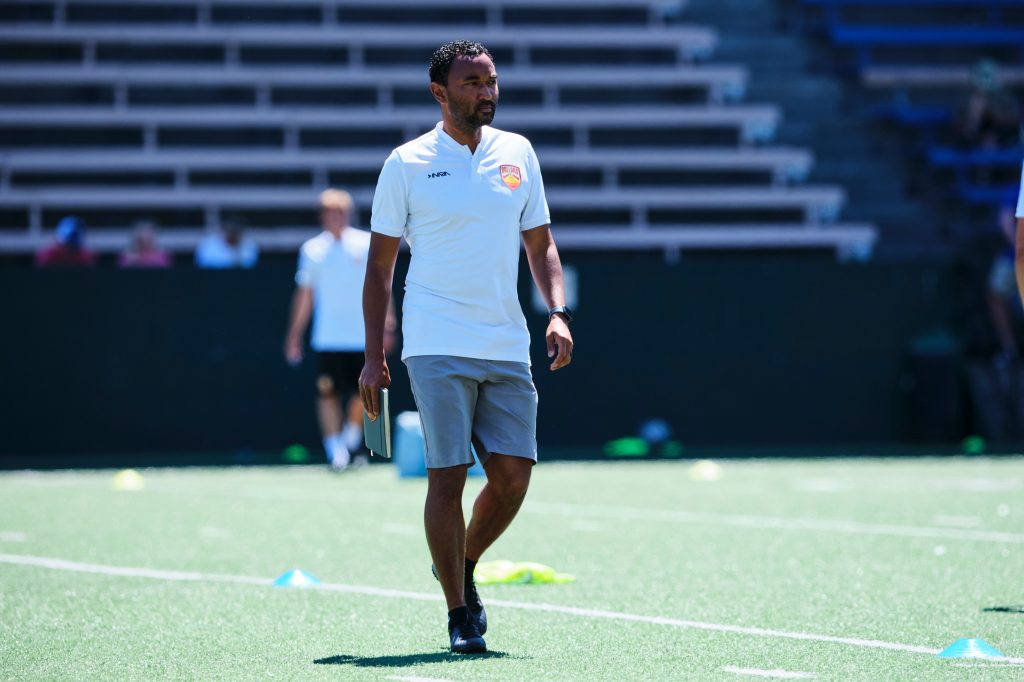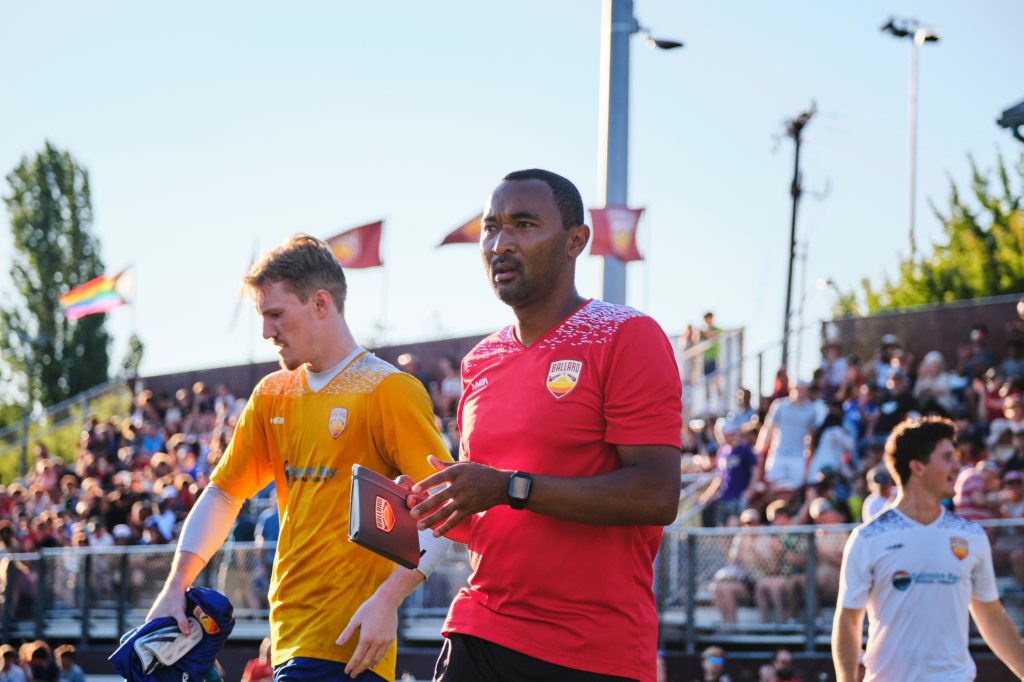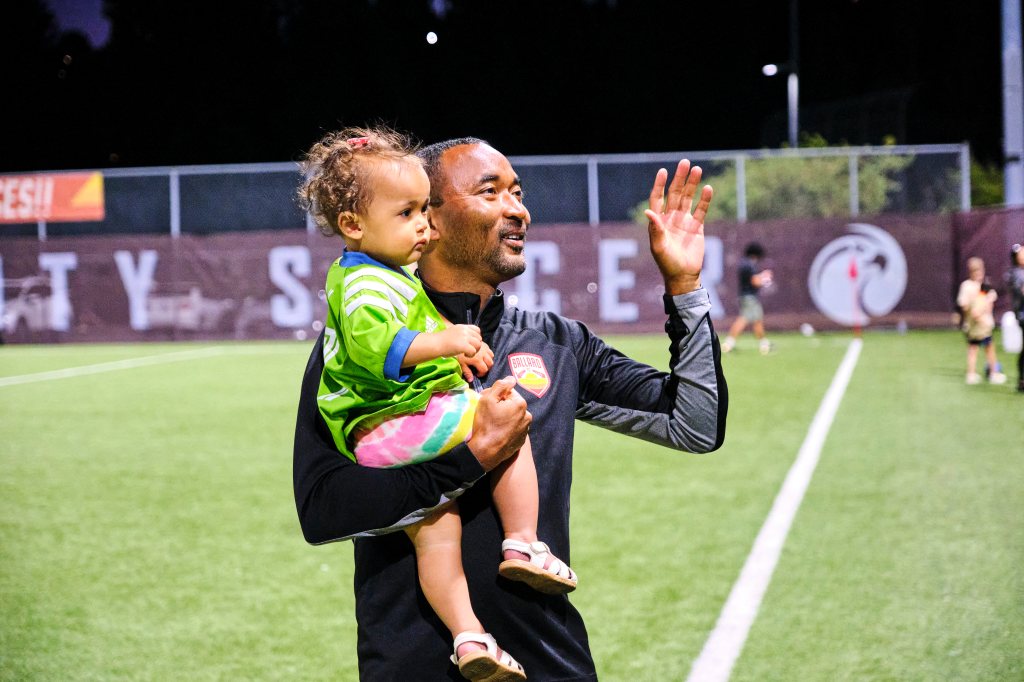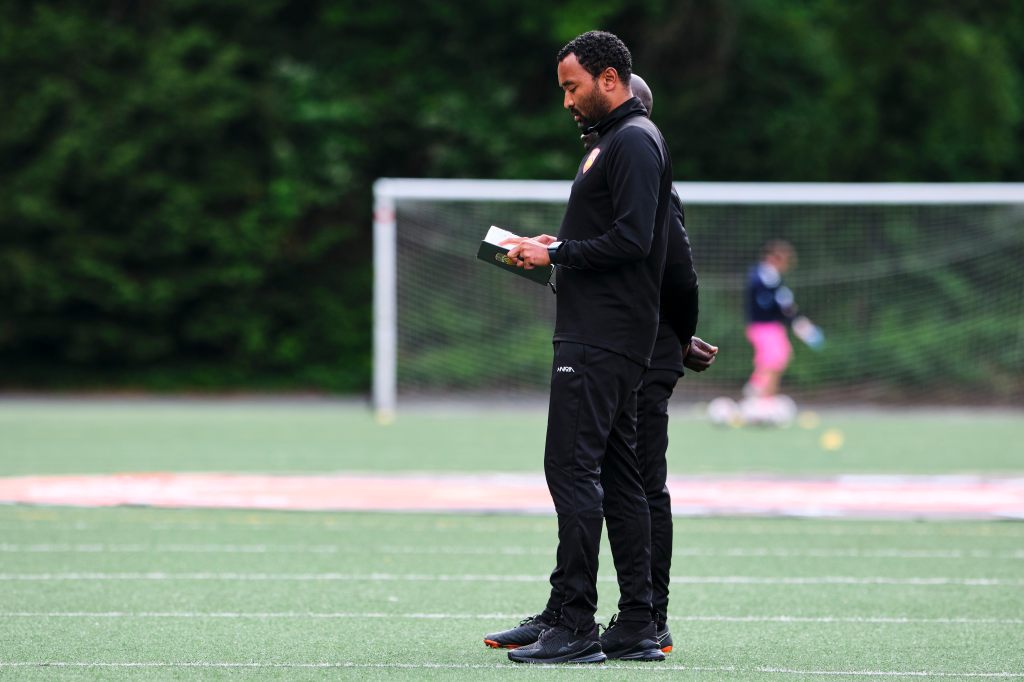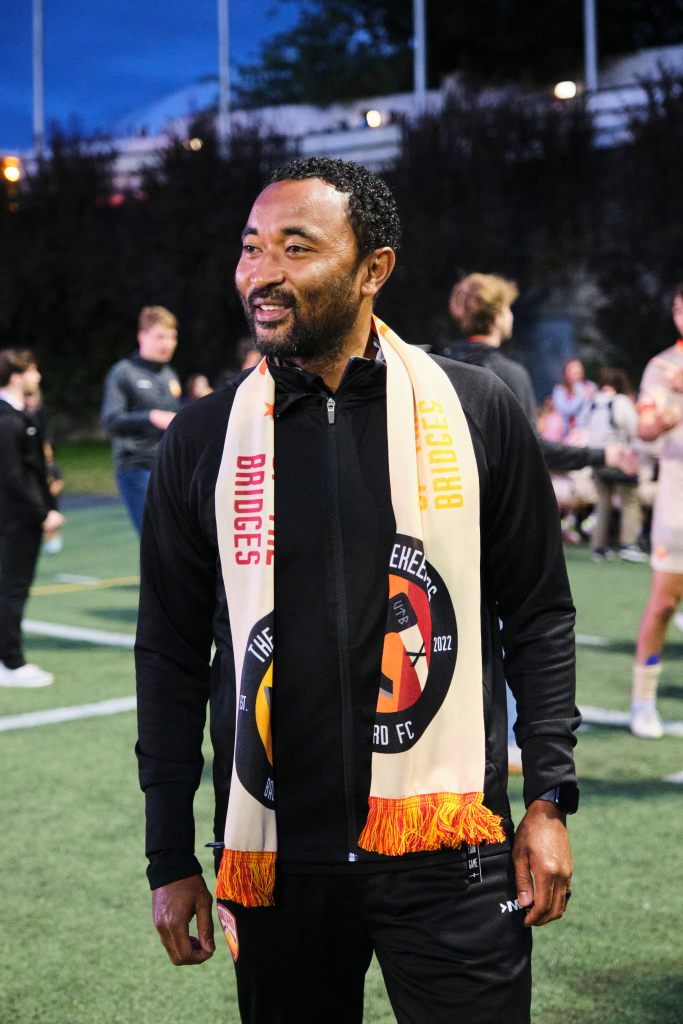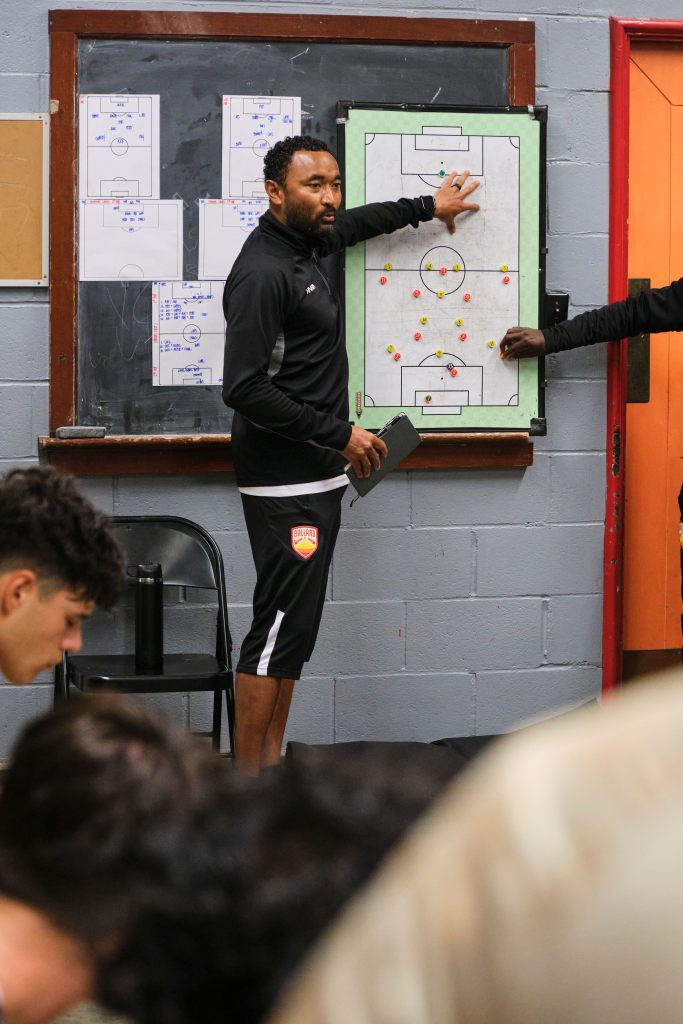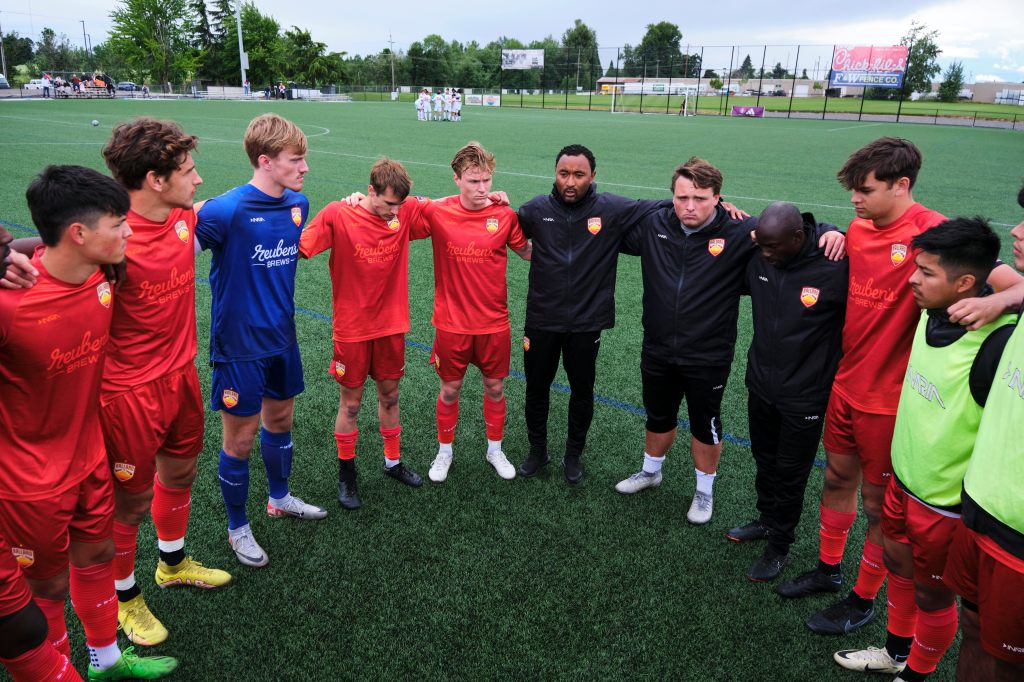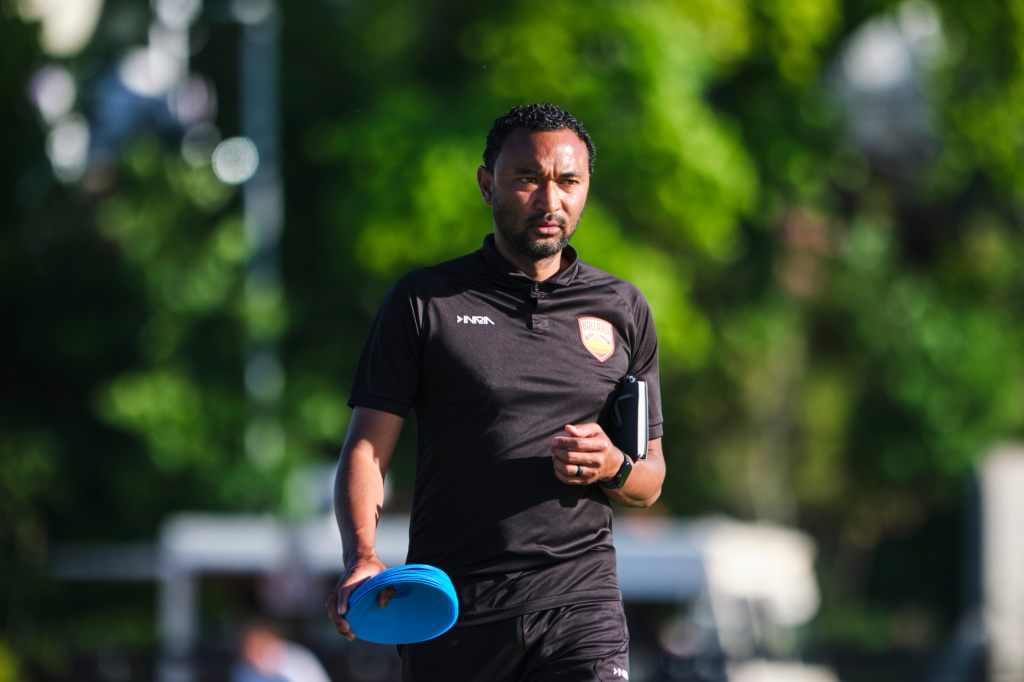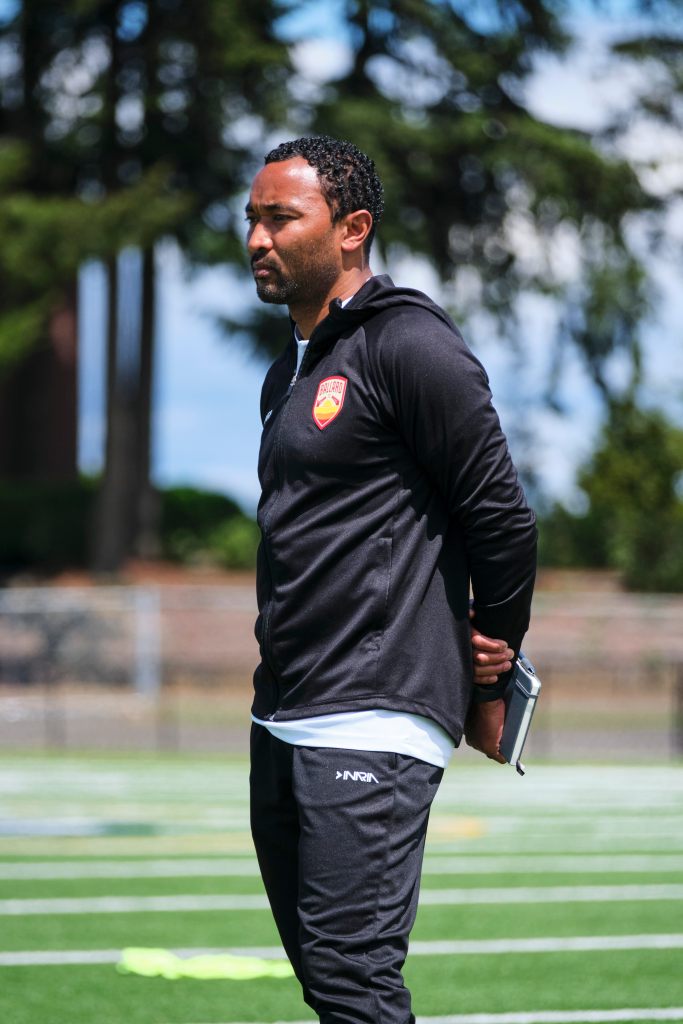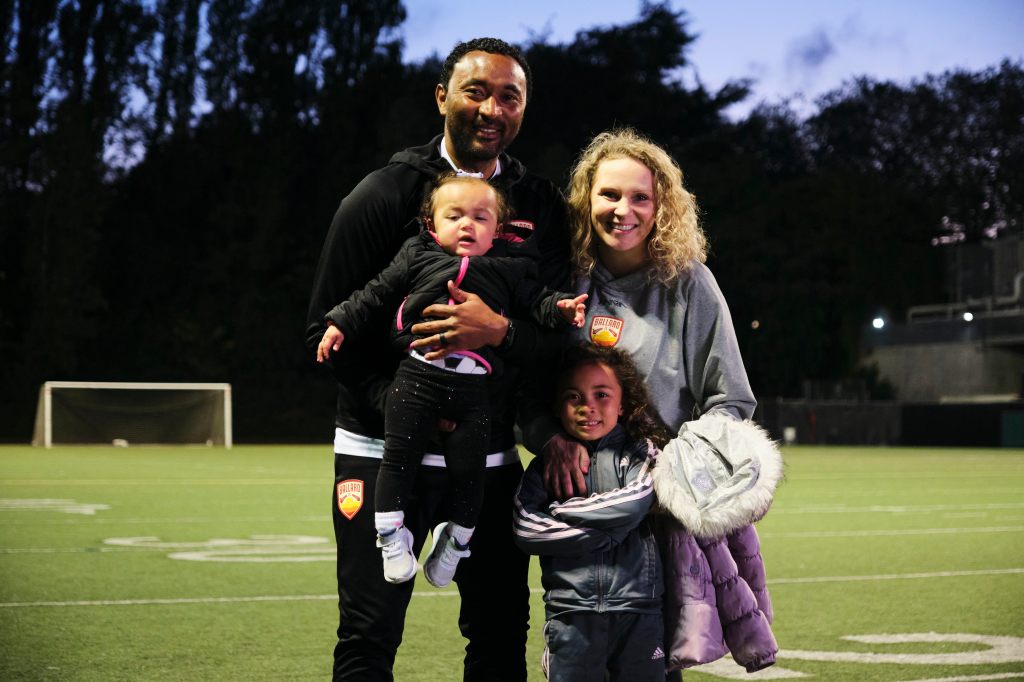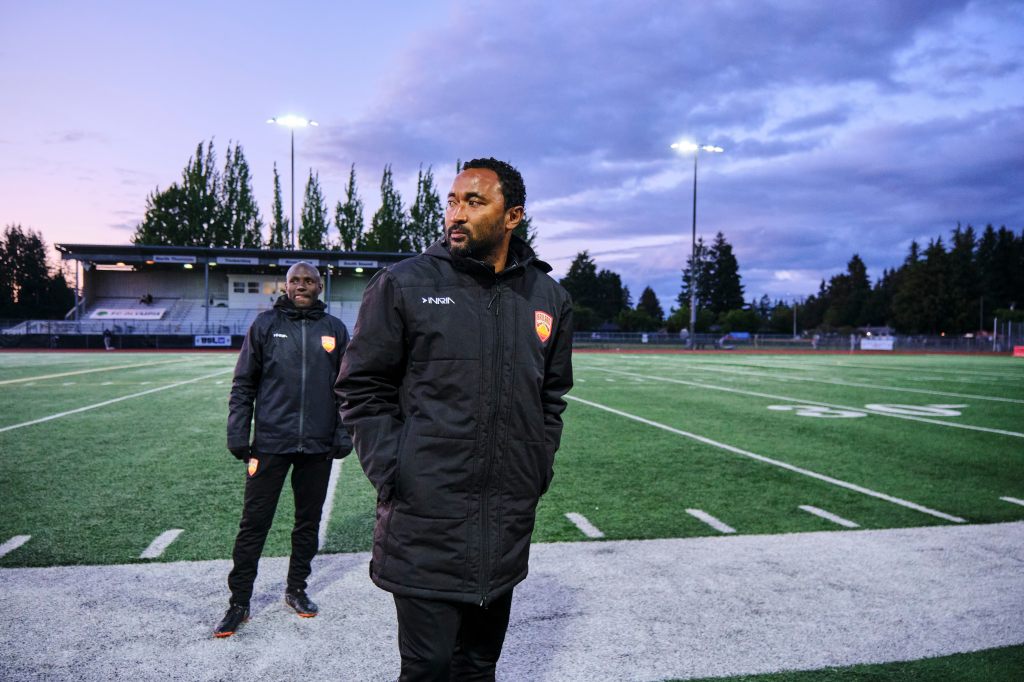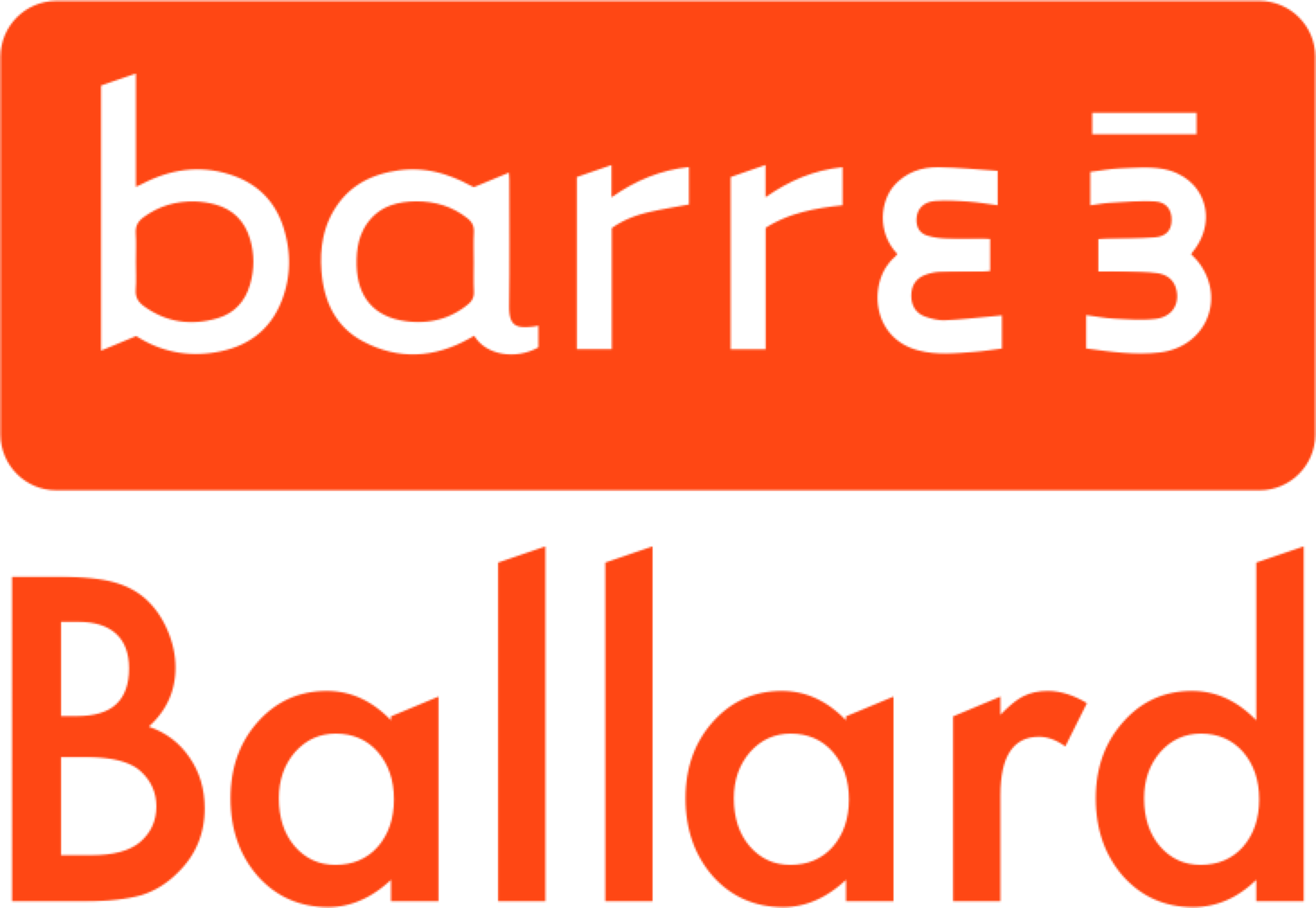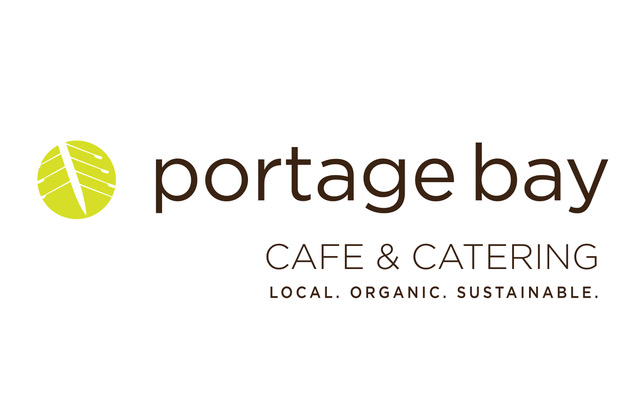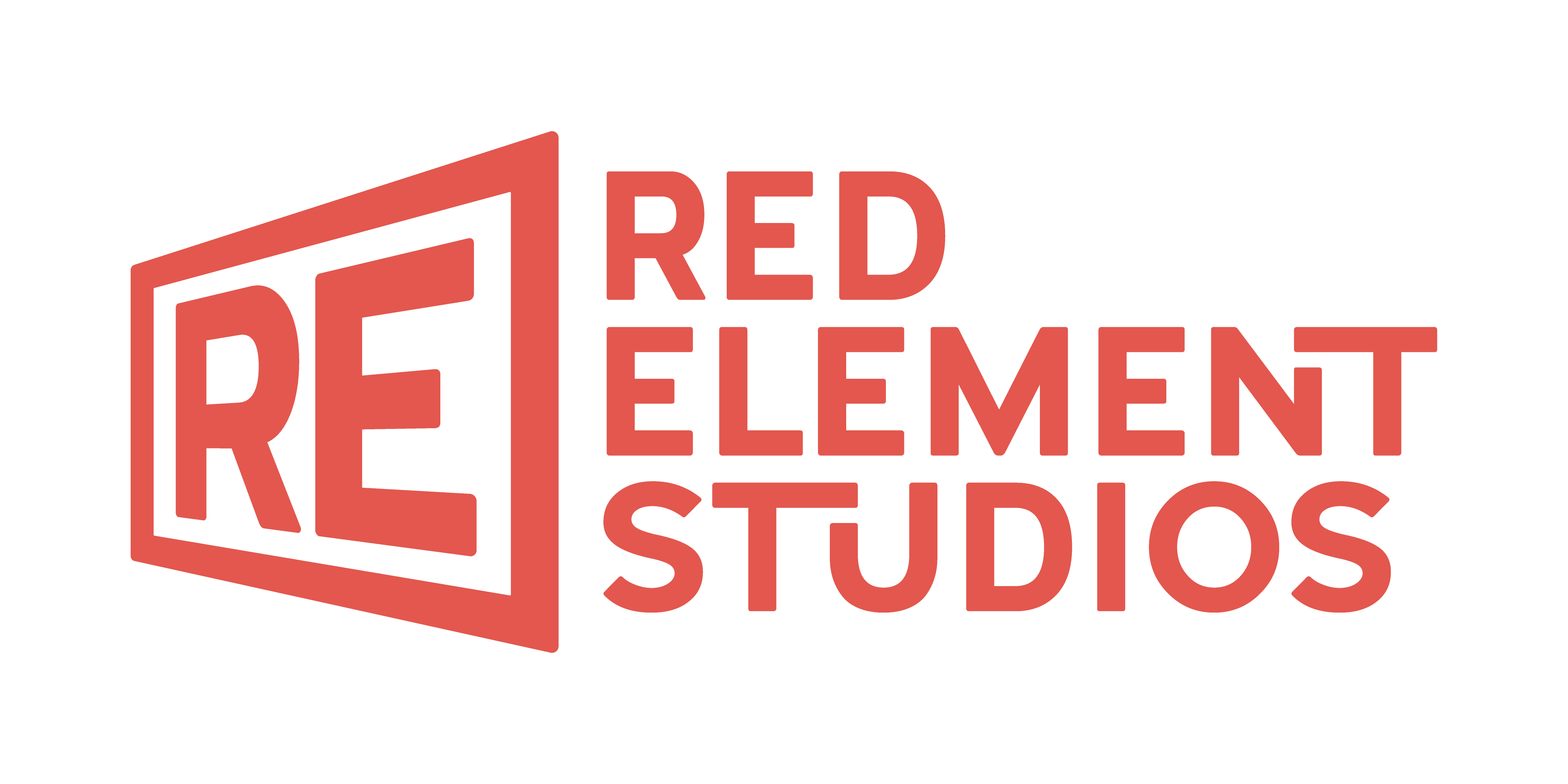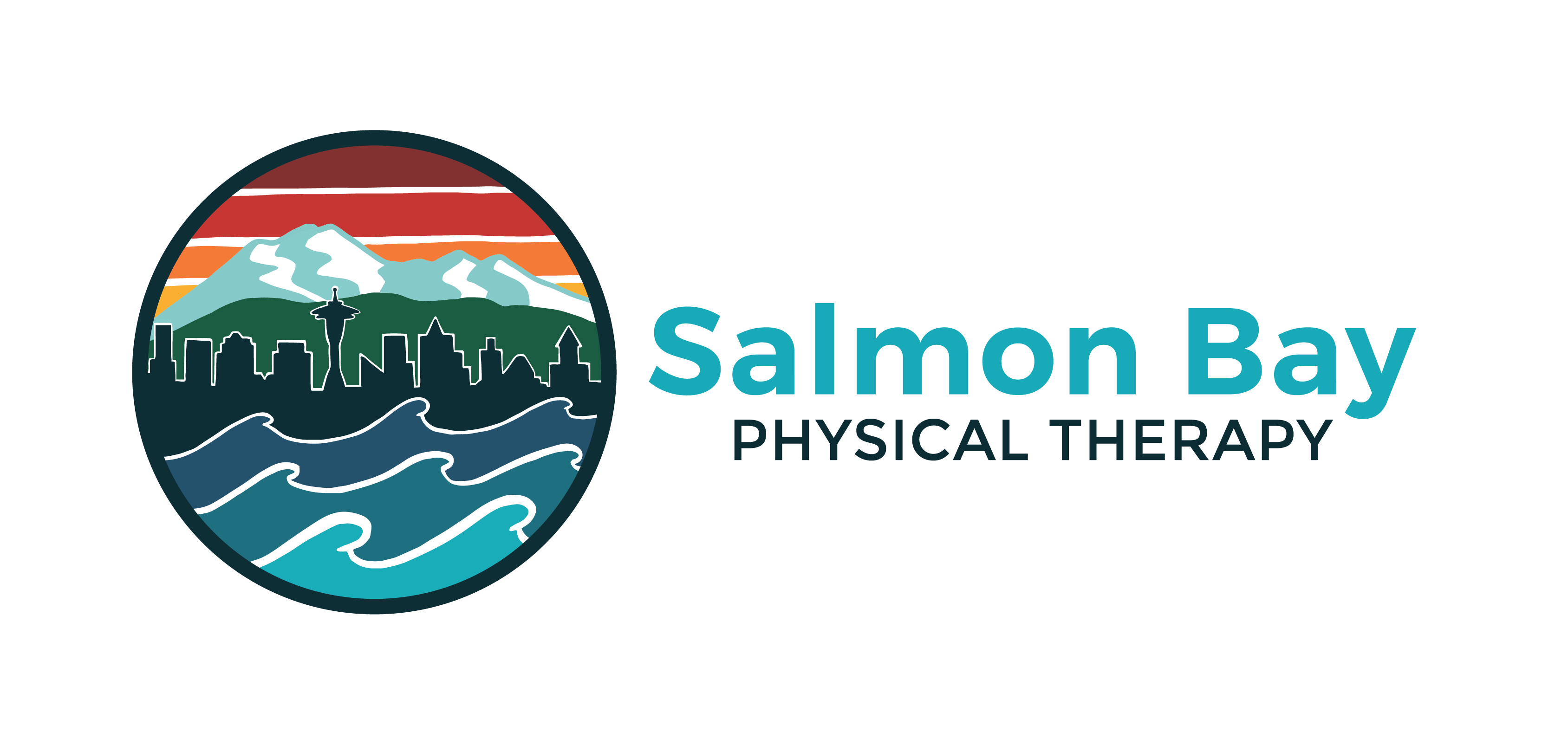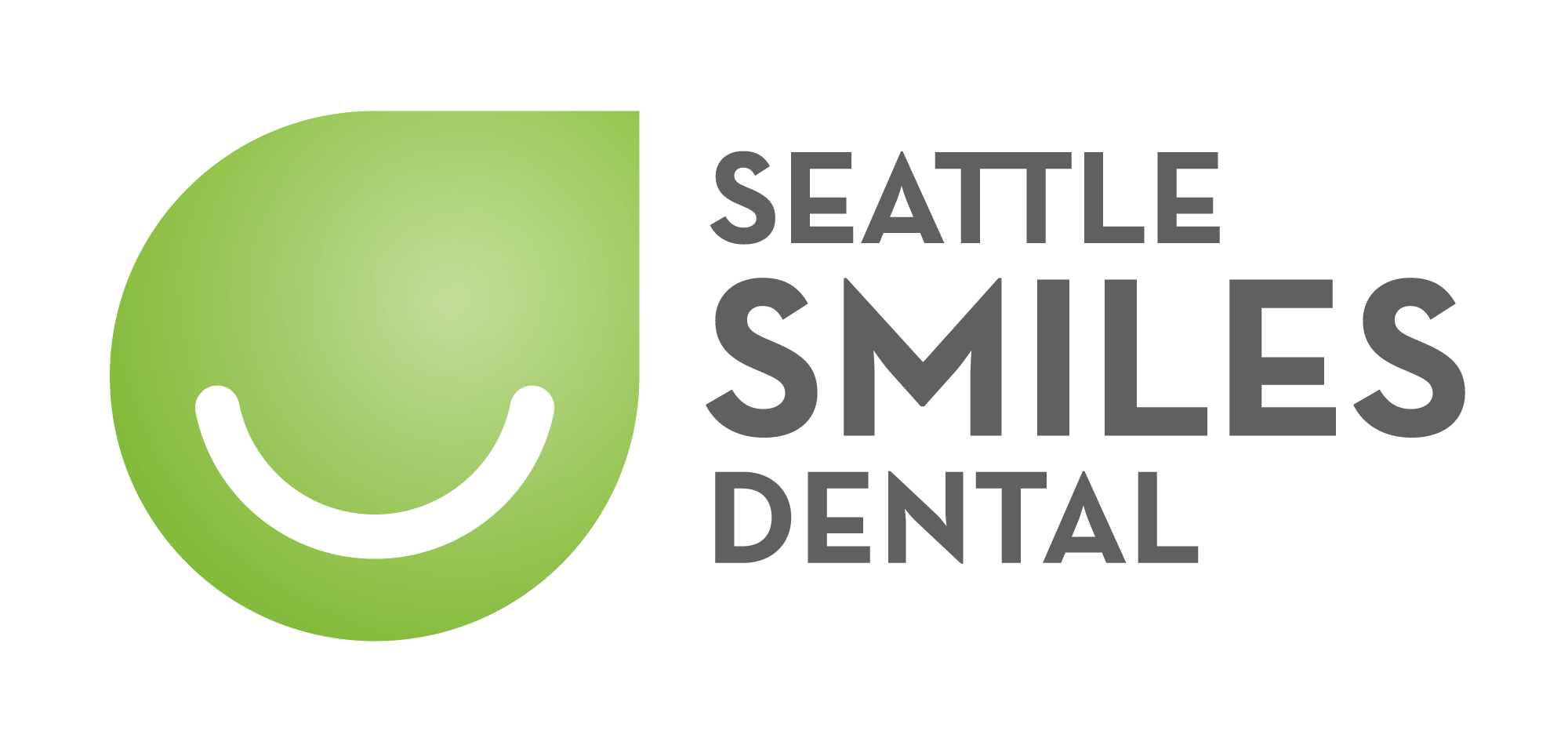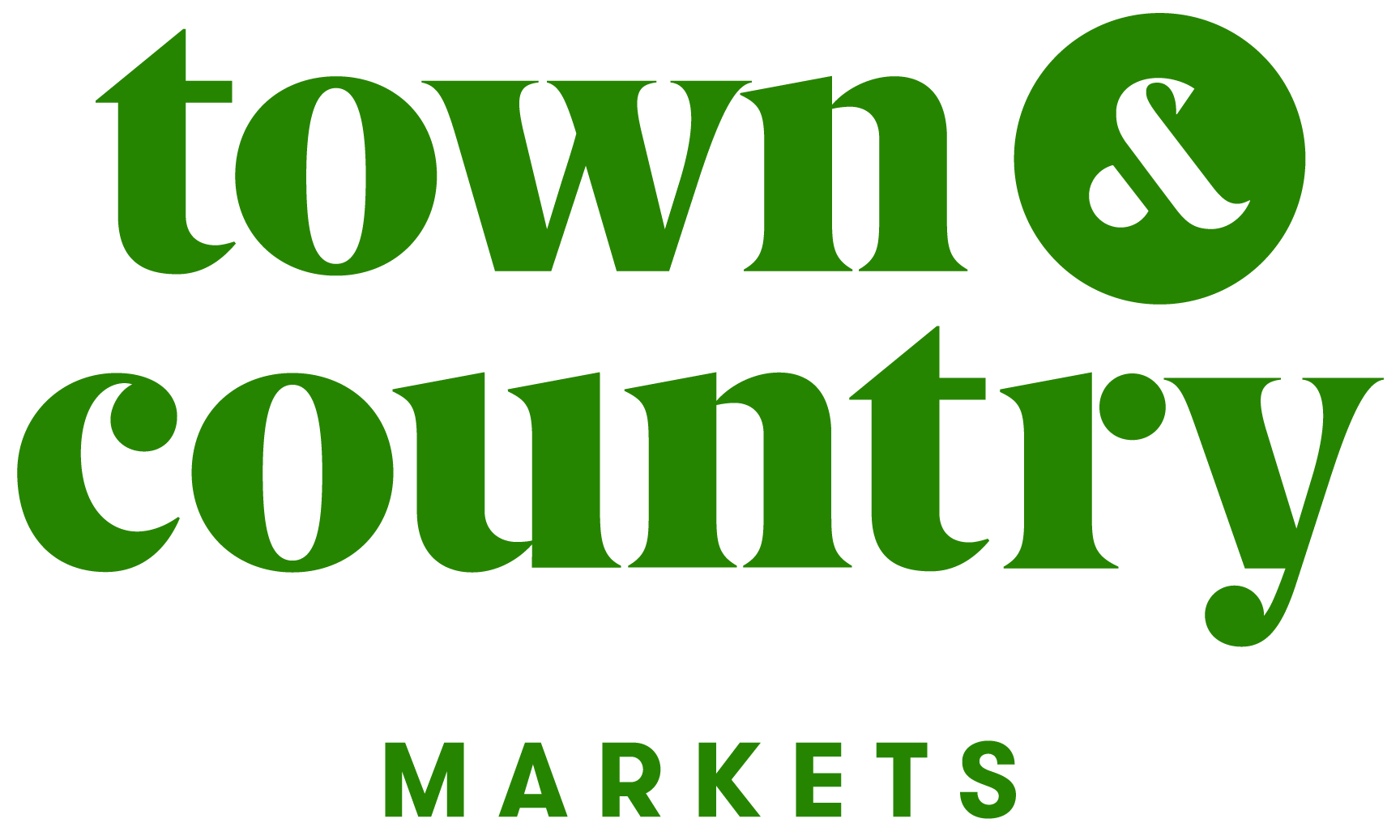After winning a Northwest Division Title in his first season, Head Coach James Riley will return to Ballard FC for the 2025 season.
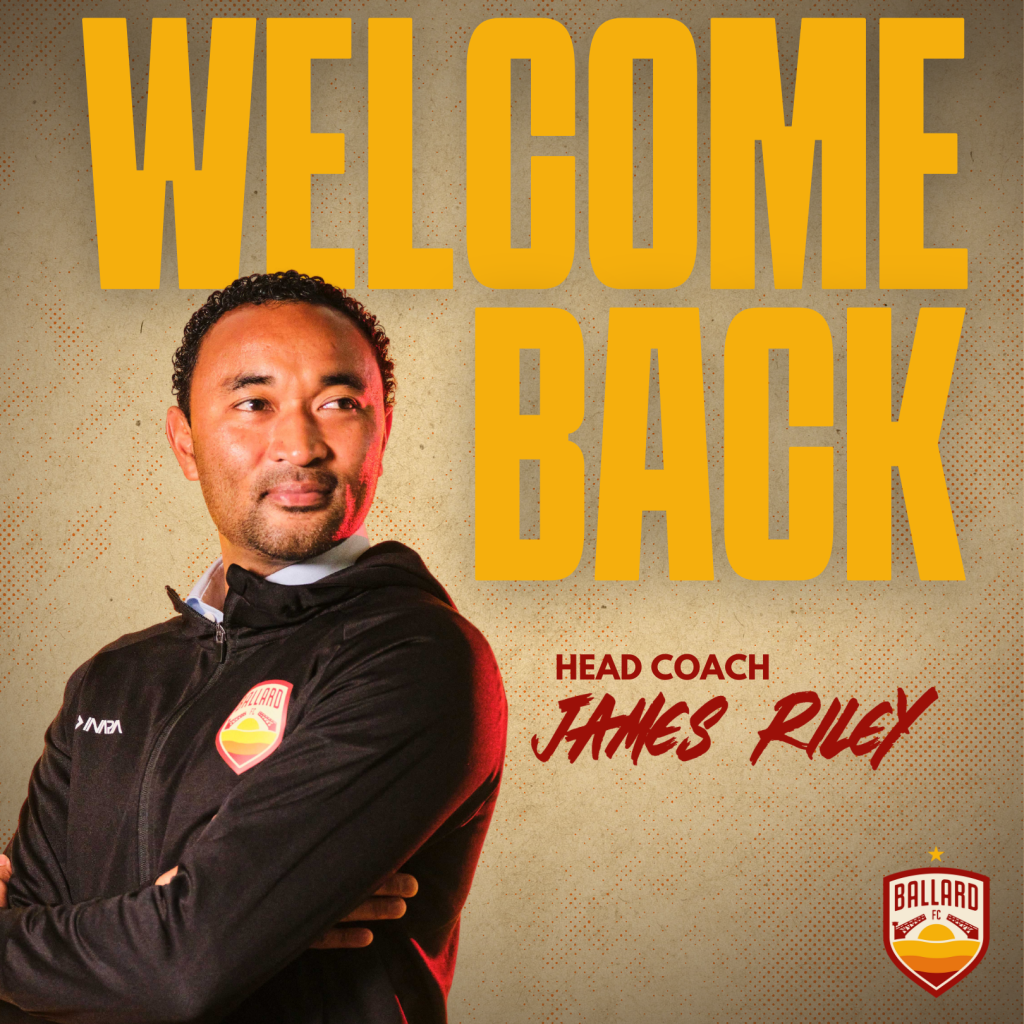
We sat down with Coach Riley to discuss the offseason, recruiting, coaching at the club level, the new women’s team, and more as we look forward to the club’s fourth season in USL League Two.
Q: The college season is underway, and your alma mater, Wake Forest, is doing well. Have you been able to catch any of their games?
A: Yes, I watch a lot of games and try to catch highlights. I haven’t seen the Wake vs. Syracuse replay yet, but I plan to. I’m following a lot of our guys at Penn, University of Washington, Seattle U, and Seattle Pacific as well, and it’s exciting to see how well they’re doing.
Q: What’s your approach to recruiting players this season? Are you scouting during games, or do you already have a list of players in mind?
A: Great question! Last year, we had a solid roster to build from. With the help of Sam Zisette, we were able to retain a lot of guys from the National Championship team. This year, with more players graduating, I’ll be having conversations with them about their future. Our focus is on local universities first—maintaining relationships with UW, SU, and SPU is crucial. Then, we’ll also look at players from outside the region. Our goal is to bring in high-character, high-performing individuals.
Q: When identifying high-character, high-performance players, do you rely on coaches’ recommendations? Or on the recommendations of collegiate teammates that you might already know? What does the process look like?
A: Absolutely, it’s all of the above. We talk to local coaches after their seasons and discuss players they think would fit our team. Their insights are invaluable in narrowing down potential recruits.
Competitive games, like the U.S. Open Cup last year, are also a great way for us to bring value to the local university coaches and also for evaluating talent before the USL 2 season.
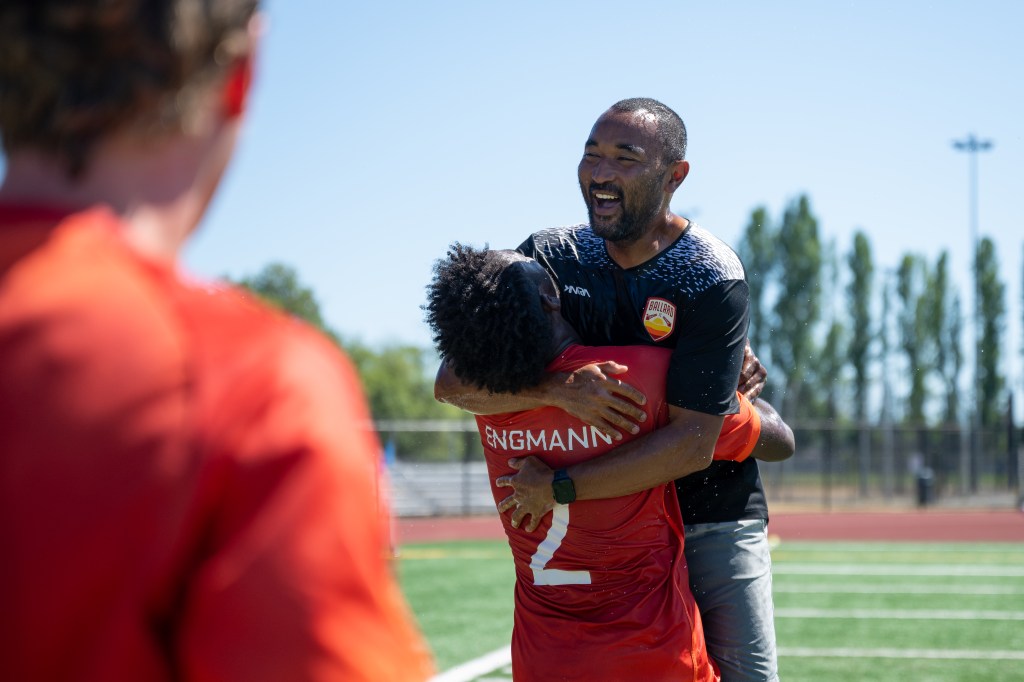
Photo courtesy of Marissa Lordahl
Q: Having played Division I soccer at Wake Forest, how do you think the collegiate experience has changed for current players?
A: The biggest change is in travel. During my time, we only flew once in four years; now there’s significantly more air travel. The competitiveness remains high, but there’s a lot more international talent now, which raises the level for everyone involved.
Q: With all the travel, do you think it prepares players for the professional level?
A: Definitely. The travel experience helps players learn how to manage themselves as pros, including hydration and recovery protocols. If managed well, it can be a great preparation step for professional soccer and potentially the MLS.
Q: With roster restrictions, such as only five players from any one university, how do you navigate recruiting players from local schools?
A: Those restrictions are a challenge. Last year, we had specific players in mind, and I had great conversations with coaches at UW, SU, and SPU who helped recommend others as well. Prioritizing players from local schools is key, aiming to secure a core group from each.
With five from UW, SU, and SPU, that’s 15 high-performers right there that we can build upon to make a great roster.
At the end of the day, a lot of these roster decisions lean on the player and what they want to do during the summer: Do they want to go home? Do they want to stay local? Do they have internships or things of that sort? The college coaches help us figure these questions out, and then we can go from there.
Q: You just mentioned internships. In the past, we’ve had players accept internships in Seattle and then become key members of our team. In 2023, both Luke Thomas and Eric Lagos joined the National Championship roster that way. Is that something you’re looking into?
A: Yes, absolutely. Sam and I never want to leave any stone unturned. Targeting players who are in Seattle for work that can manage both an internship and soccer aligns perfectly with our aim to attract high-performing individuals who are both responsible and committed.
Q: As you know, the announcement of a women’s team is coming soon. How do you think that will impact the men’s team and the club as a whole?
A: I’m incredibly excited! Having a women’s team will enhance the soccer landscape in the area and provide a platform for female athletes. It’s a fantastic opportunity for growth for both the club and for the local community. And the double headers will be exciting for everyone.
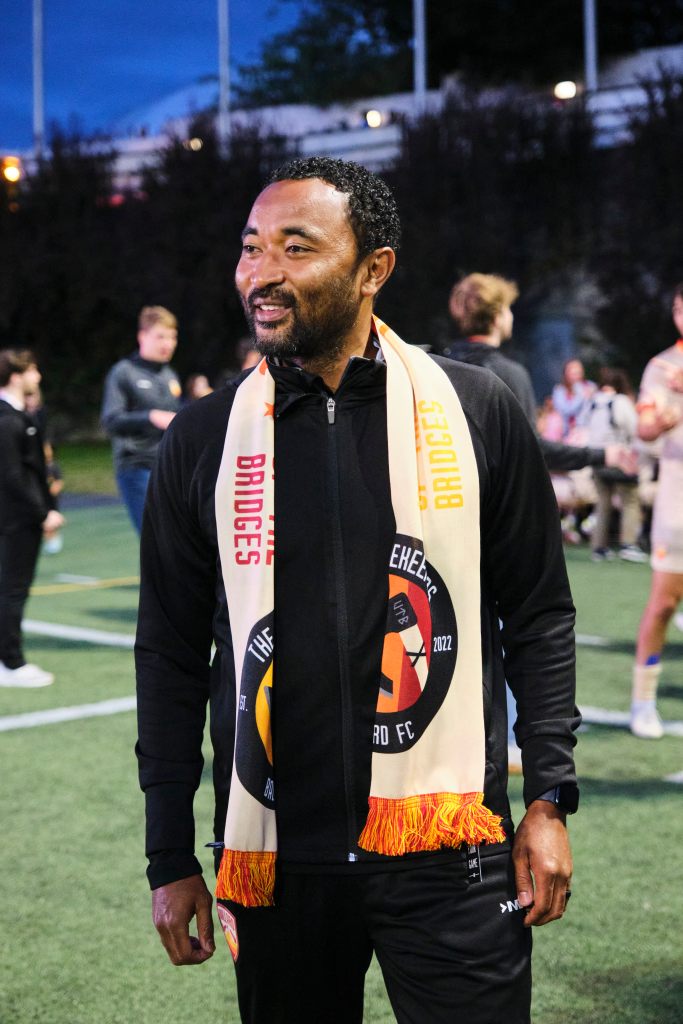
Q: Yeah, both teams will play at Interbay Stadium this next year. Obviously you’re very familiar with Interbay because that’s where we practiced all last season, but we haven’t played a regular season game there in quite some time. Are you excited to have a full season at Interbay? Are you going to miss Memorial Stadium? How do you feel about that?
A: I think we’ll always miss Memorial. I think the history within Memorial is just something that can’t be replicated. There are very few times where you’ll have an opportunity to play in such a historic stadium that has done so much for the soccer landscape in this region. So last year, I thought it was great to play at Memorial, it was a once-in-a-lifetime opportunity because obviously it’s going to be renovated.
Getting back to Interbay will be great. We train there three times a week, and a lot of the players have played there numerous times. So, Interbay will be a tremendous home for us as it’s been in previous years, and we look forward to making it a fortress once again.
Q: In addition to Ballard FC, you coach high-level club soccer with Eastside FC. How does that experience influence your coaching style with Ballard?
A: It’s a great balance. Fortunately for me, I coach at the U-19 level for Eastside so there’s not a huge age difference. So, I can relate to the players on both my teams better since they are both at similar stages in development.
Coaching U-19 allows me to experiment and refine my methods, which I can then apply with slightly older and more experienced players at Ballard FC. It also helps me interact with players better, especially when they face challenges. At Eastside, I often am trying to help players play in college and with Ballard FC, it’s about preparing them for the pros.
Q: How do you handle those tough conversations with players who may expect to start, and are not getting the minutes they want?
A: It starts with recruiting the right individuals. We emphasize that competition for minutes is a core part of our program. By setting clear expectations from the beginning, we can maintain a healthy team dynamic, where everyone understands their role and can contribute positively.
Additionally, we can help create competitive minutes for everyone on the roster through opportunities like friendlies with the Tacoma Defiance.
Q: Speaking of the Defiance and the Sounders organization, you played in the MLS, including for the Sounders. How has your professional experience influenced your coaching philosophy?
A: It all begins with mindset. I instill an expectation to compete for playoffs and be successful, an expectation shared by the Sounders. This culture of high expectations from my playing career helps set the tone, and then I always encourage open communication with my staff to ensure we’re continually improving in all aspects.
In the pros, success is taken seriously on the pitch, in training, in the locker room, and in the community. It’s important that I’m always talking to staff here at Ballard FC to try and create a professional environment for everyone involved.
Q: Ballard FC and USL 2 are not just for collegiate players. In the past, we’ve had players use a summer at Ballard to get professional opportunities like Alex Mejia and Danny Robles. This past season, we had Juan Alvarez on our roster who had professional experience with the Tacoma Defiance. How do you recruit those types of players who aren’t currently in college but have professional aspirations?
A: We’re committed to being a platform for all players to develop and showcase their talents. We want to create an environment where players can train with and compete against the highest competition possible and bringing in guys with professional experience can help with that.
The successes of players like Danny can help us in our pursuit of all local talent beyond college athletes.
Q: Finally, some USL 2 teams around the country have gone after former MLS guys when they’re done at that level. For example, Sacha Kljestan played for Des Moines Menace recently in the Open Cup. Kelyn Rowe did just join the Ballard FC ownership group that already included Lamar Neagle. Are you going to give either of them a call?
A: Kelyn and Lamar already have that open invite. But I think Kelyn’s on his wine tour right now, and I’m not sure how fit he’d be. But yes, without a doubt, you want those types of guys, but you also want the right guys. We have an expectation that players are at training, and that players are committed to Ballard FC. And if they check those boxes, then yeah we’d be good to go.
We’re open to any opportunity for players that reach out, and we will certainly be proactive and innovative in how we search for certain players that may fit that criteria.
James, thank you so much for the conversation, and congratulations. It’ll be good to see you at the women’s launch, and I can’t wait to work with you again next year.
If this conversation got you excited for the 2025 season, you can get season tickets on October 25th at 9am.




































































































































































































































































